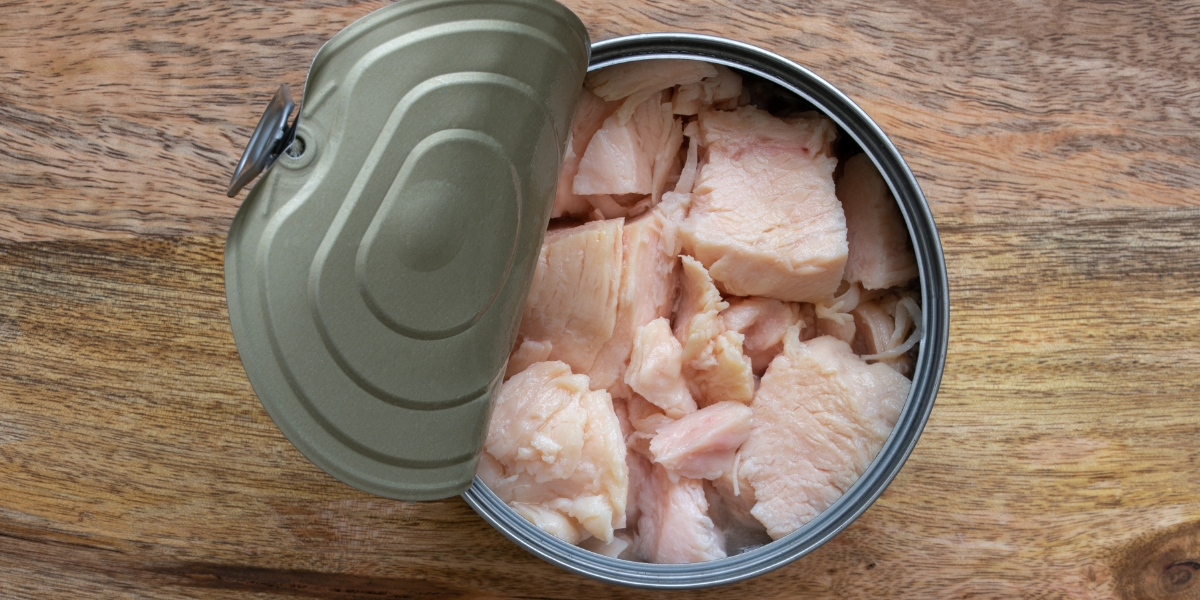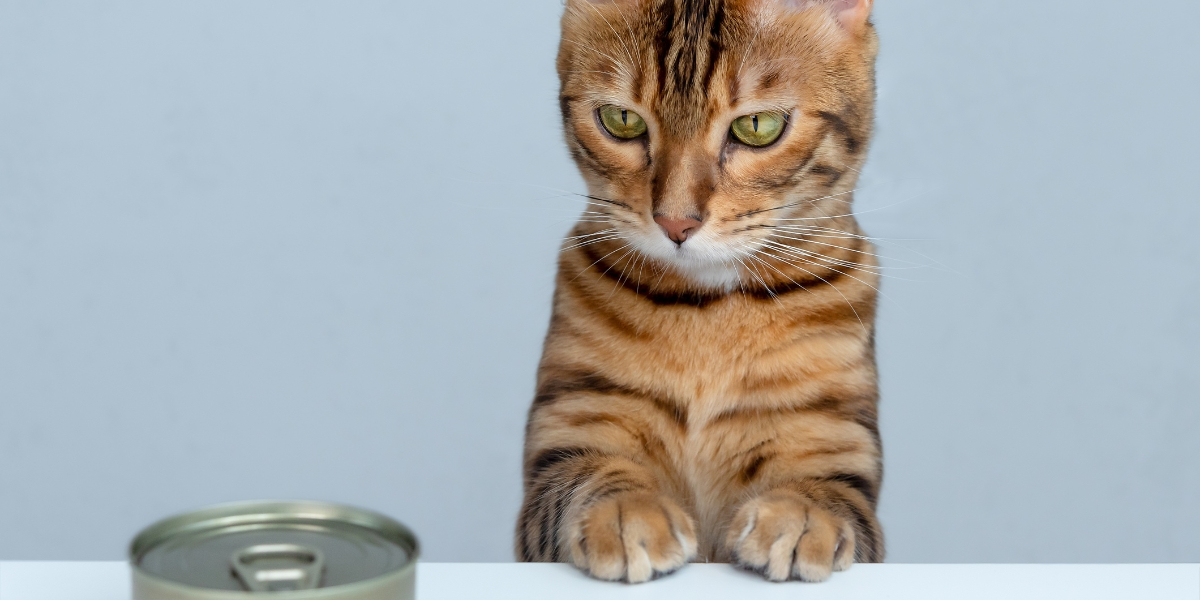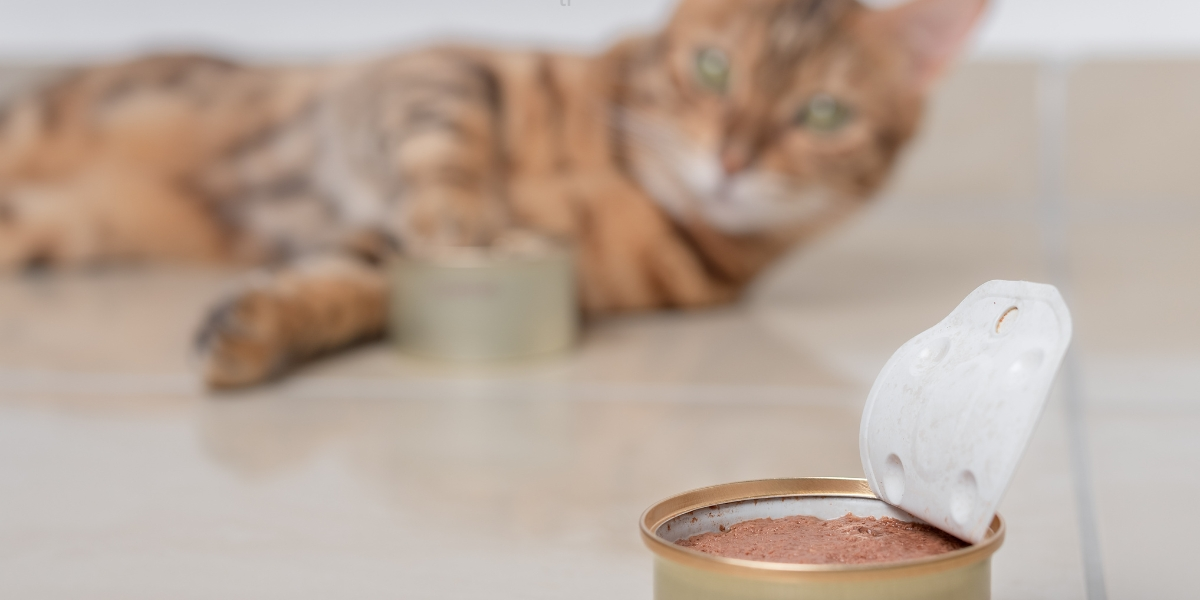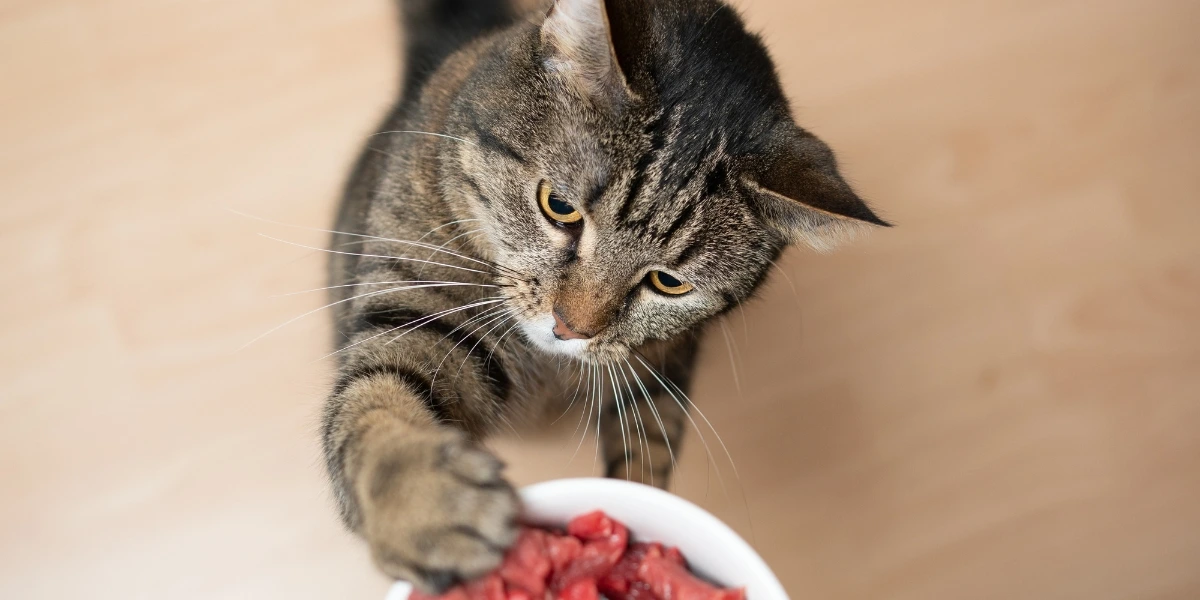Can Cats Eat Canned Chicken Breast?
Everyone knows that cats are obligate carnivores, meaning they’ve evolved to eat meat entirely. But if you’re considering feeding canned chicken to your feline, there are a few important things to know.
Luckily, it’s typically okay as a treat, but it’s not an optimal choice for a healthy diet. Many felines love the smell and taste of shredded chicken in broth, but cats shouldn’t live off it entirely. Think of it as a way to supplement their diet correctly, not replace their primary cat food.
I’ve tried this myself with my cat, who gets a little too excited at the smell of canned chicken. While it’s a good option in small amounts, it’s important to choose one that’s BPA-free (Bisphenol A-free) and avoid those with added oils or fats.
If you’re using it as a treat alongside their regular Kirkland dry food, your feline will likely enjoy it without any stomach problems. Just remember that multiple types of meat aren’t necessarily the best for all cats, and some might guess they want more because it’s so tempting. Pay attention to their reactions, as giving canned chicken too frequently could cause particular problems in some cases.
Continue reading below for all the essential information you need to know about feeding your feline canned chicken.
Is Canned Chicken Safe for Cats?
Canned chicken can be tempting to offer your cat, but not all canned foods are suitable for their needs. Many varieties contain a large amount of sodium along with seasonings, flavorings, and preservatives that aren’t ideal for felines.
If you’re worried about what’s in the rest of the ingredients, always check the label to ensure it’s as plain and unflavored as possible. While the sodium helps keep it fresh, too much can be harmful to your cat’s health. For safer options, plain, boiled chicken can be a better choice.
If you’re considering using canned chicken as a treat, look for brands with only water, a bit of salt, and no added chemicals. Reading and understanding the label is a must to avoid potential risks.
Cats with special diets or medical problems like kidney disease, diabetes or hyperthyroidism should not be offered human foods like this without a vet’s authorization. I’ve learned that offering plain, unflavored options—even if it means rinsing the chicken to remove as much sodium as possible—can make all the difference for their health and happiness.
If you can, avoid giving canned chicken altogether and take the opportunity to offer safer alternatives like plain boiled chicken. For those moments when a quick option is needed, make sure the food is super fragile and free of anything harmful. Remember, the best care comes from thoughtful choices tailored to your cat’s unique needs.
Can Cats Eat Canned Chicken Without Cooking?
Canned chicken is usually safe for felines because the large majority of it is already cooked during processing. The boiling water bath and sealed lid help kill bacteria, making it safe to eat right out of the can.
While it’s grain-free and can seem like an easy treat, remember that even though it’s been cooked at least a little bit, it’s not always the best choice for regular feeding. I’ve noticed that cats love it straight from the can, but offering it sparingly ensures they stay healthy and happy.
Should I Rinse Canned Chicken?
When feeding canned chicken to your cat, it’s often recommended to rinse it with purified drinking water to wash away sodium, which might make it a healthier option. Washing the can before you open it can also help prevent contaminants from the outside falling into the chicken, even though the chance is relatively low. For picky cats, rinsing can entice them, especially if the chicken mimics the flavor of roasted meat they love.
How Long Is Canned Chicken Good For?
Canned chicken, once opened, should be kept in a separate container in the fridge and used within about 5 days. Since your cat may not eat all at once, especially if you’re supplementing their diet, it’s important to feed them within this time frame to prevent bacteria from growing after that point. I’ve noticed my cat prefers smaller, fresher portions, so keeping leftovers properly stored is a simple way to keep them healthy.
Before opening, always follow the best-by date listed on the can. Canned chicken typically lasts years if not opened, but the exact length may vary depending on factors like additives, sodium levels, and the environment.
In most homes, storing cans away from sun, rain, or something of the sort is perfectly suitable. Remember, when sharing human food with your furry friend, it’s not always a safe solution, but proper handling can keep both of you smiling.
Canned Chicken: Not a Complete and Balanced Diet
While canned chicken can be a convenient option to feed your cat in an emergency or as an occasional treat, it’s definitely not something you should give them every day. It does not contain all the nutrients your pet needs to thrive.
Felines have special nutritional needs, and canned chicken by itself cannot cover them. For instance, it lacks organs like the liver and heart, which are rich in taurine, a critical nutrient. It also doesn’t include bones to provide calcium, leaving your cat’s diet deficient.
To ensure your pet gets the nutrition they need, rely on commercially available fresh, wet, or dry food labeled as complete and balanced, which includes the necessary nutrients for cats. While canned chicken lacks these essentials, it’s fine to use in an emergency for a day or two or as an occasional treat, but never as a regular basis for their meals.
Canned Chicken and Obesity
While canned chicken can be a tasty treat for cats, it might cause obesity if overfed. Its delicious smell can make cats indulge a little too much, especially those that are food-driven. Some felines may even gorge on canned chicken, leading to weight gain over time.
To prevent this particular problem, it’s essential to feed only the amount that meets their nutritional needs, using it as a treat or supplement rather than a primary food source.
Learning what your cat can eat is a crucial part of keeping them happy and healthy. Choosing cat-friendly foods in a well-portioned bowl ensures their specific needs are met. As a pet owner, finding tools like the Hepper NomNom Cat Bowl can help serve their favorite food or water in an innovative design, keeping their feeding habits in check while satisfying their appetite responsibly.
Final Thoughts
Canned chicken can be a safe option for cats in moderation, especially as an emergency meal or a supplement to their diet. However, it’s essential to ensure the ingredients are free from spices, flavorings, or other items toxic to your feline. Since it’s not a nutritionally complete source, it should only be used occasionally and not replace what they need to eat daily. Think of it as a snack or a special treat, not a staple.
For special occasions like birthdays, many cats enjoy canned chicken paired with fish chunks, fish broth, or even a small serving of chicken liver or shrimp. A tiny bit of rice can also add a healthy dose of fiber for variety. To maintain a good balance, ensure they primarily consume actual chicken alongside dry food or other essentials that are easy on the wallet yet meet their dietary needs.
If your cat has prescription diet needs or health conditions, like those requiring special care, consult your veterinarian before offering canned chicken or any other human foods. This ensures your furry friend stays both happy and healthy without compromising their well-being.
You may also be interested in:










